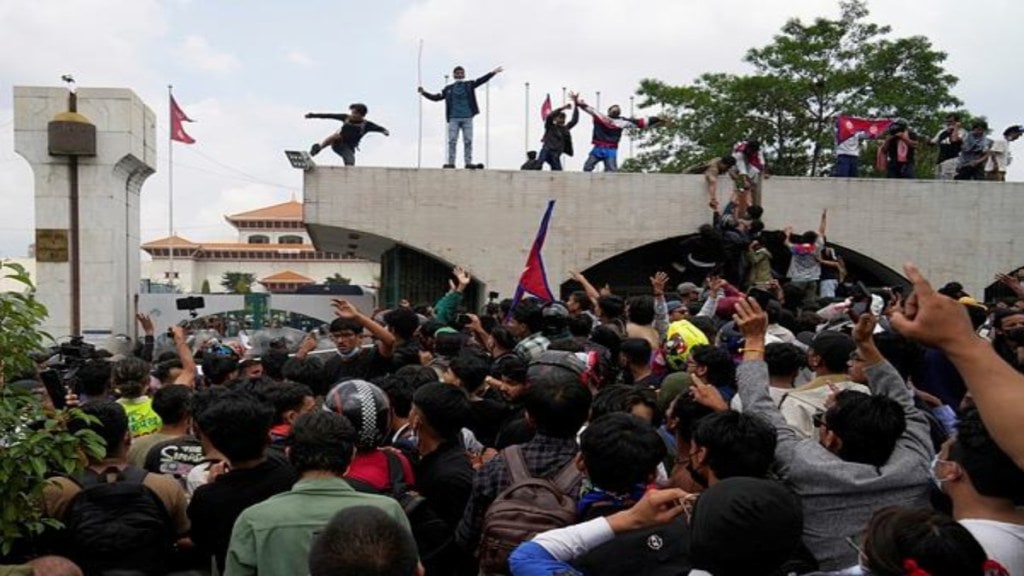Nepal is in turmoil as mass protests sweep across Kathmandu, with thousands of young people taking to the streets against corruption and the government’s sweeping ban on social media platforms. Protesters have surrounded Parliament, accusing Prime Minister KP Sharma Oli’s administration of curbing free speech and ignoring public concerns.
Also, at least one person was killed and hundreds injured after police used rubber bullets and fired into the air to disperse protesters outside Nepal’s federal parliament on Monday. Among the wounded were three journalists, as youth-led demonstrations against corruption and the social media ban intensified in Kathmandu, reports Republica.
Police said they fired into the air after protesters smashed Parliament’s main gate, stormed the premises, and set fire to the entrance. Following the escalation, the government imposed a curfew around Baneshwor, Lainchaur, and other sensitive areas as the initially “peaceful” demonstrations spiralled into violent clashes.
The unrest has been further stoked by a rare public address from former King Gyanendra, whose words have emboldened sections calling for a return to monarchy and even the revival of a Hindu Rashtra.
What led to the protests?
The crisis erupted after the government moved to block 26 major platforms, including Facebook, Instagram, WhatsApp, X, LinkedIn and Signal, citing their failure to register under Nepal’s new social media regulations.
The Ministry of Communications and Information Technology said the companies were given seven days to comply but missed the deadline, leading to a blanket shutdown. Rights groups and businesses, however, denounced the move as an assault on democracy and economic freedoms.
What PM Oli said?
Prime Minister KP Sharma Oli defended his government’s decision to ban 26 major social media platforms, insisting it was about upholding national law and sovereignty rather than silencing voices. Addressing party representatives at the Communist Party of Nepal (Unified Marxist-Leninist) convention, Oli stressed that the government is not against social media itself, but against companies profiting in Nepal without complying with regulations.
Citing national dignity and constitutional respect, he argued that the independence of the nation outweighs the job losses caused by the shutdown. “How can it be acceptable to defy the law and undermine sovereignty?” he asked.

